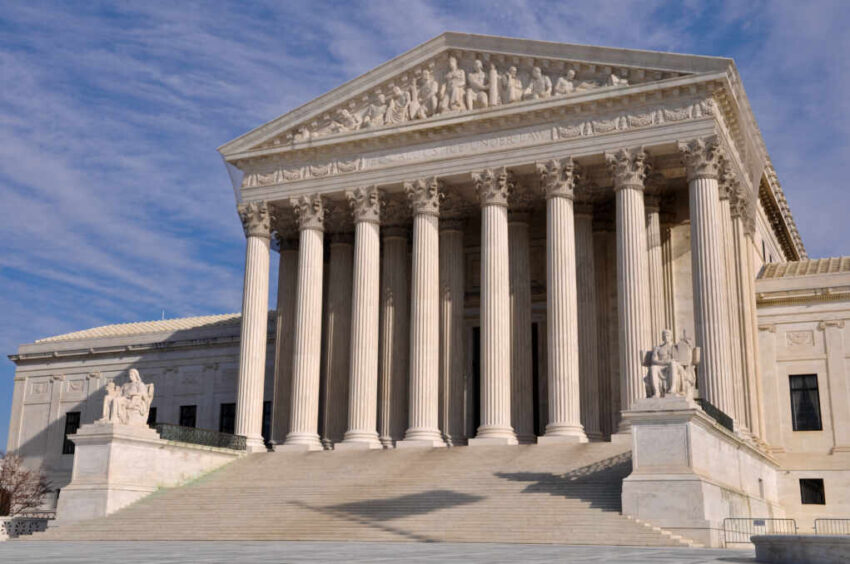New Jersey prosecutors are pursuing criminal charges against local journalists for refusing to delete a truthful police blotter entry, challenging long-held First Amendment protections and threatening the public’s access to historical records.
At a Glance
- Red Bank Green journalists face prosecution for keeping a published report of an expunged arrest online.
- The U.S. Supreme Court and New Jersey’s top court have both ruled that publishing truthful, public records is constitutionally protected.
- Legal experts warn this case threatens to criminalize journalism and rewrite public history.
- Defense attorneys argue no law compels the press to erase lawfully obtained, accurate reporting.
- The outcome could redefine the limits of press freedom and public knowledge in the digital era.
Criminal Charges for Reporting the Truth: A Constitutional Crisis
In September 2024, Red Bank Green, a local New Jersey news site, published a routine police blotter that included the arrest of Kyle Pietila for simple assault. The information was publicly available and legally obtained from official police reports. When the case was later dismissed and expunged in March 2025, Pietila’s attorney demanded that the news outlet delete the article. Red Bank Green instead updated the report to note the expungement but declined to remove it entirely.
Pietila responded by filing a criminal complaint, leading a New Jersey judge to find probable cause to prosecute the site’s editor Brian Donohue and publisher Kenneth Katzgrau. They now face criminal charges for refusing to erase a published fact—despite clear legal precedent protecting their right to do so, as highlighted by Reason.
Watch a report: New Jersey Journalists Charged Over Refusing to Delete Crime Report
Legal scholars have condemned the prosecution as an affront to constitutional protections. The U.S. Supreme Court’s decision in Smith v. Daily Mail Publishing Co. established that the government cannot punish the press for publishing truthful information from public records unless a compelling state interest is demonstrated. Defense attorney Bruce Rosen emphasized that no such interest exists here, calling the charges a direct threat to journalistic independence.
Legal Precedent: Courts Defend the Right to Publish the Truth
New Jersey’s own Supreme Court addressed this issue directly in the 2011 case G.D. v. Kenny, ruling that expungement laws do not obligate private entities, including the press, to erase published reports of expunged arrests. The court affirmed that the expungement process applies only to government records and does not retroactively criminalize or restrict the publication of accurate information, as detailed by Justia.
Rosen, representing the journalists, cited G.D. v. Kenny and the “Daily Mail” doctrine, stating that “publication of truthful information on matters of public significance cannot be punished unless it involves a state interest of the highest order.” This principle is foundational to press freedom, ensuring journalists are not subject to criminal liability for maintaining historical records.
Nonetheless, prosecutors are proceeding, raising alarms within the legal and journalistic communities. Legal analysis from the Volokh Conspiracy warns that success in this case could open the door to mandated “digital erasure” of news content, allowing individuals to pressure outlets into scrubbing the public record.
What’s at Stake: Press Freedom and Historical Integrity
If the prosecution prevails, the implications extend far beyond Red Bank. News organizations could face legal jeopardy for preserving truthful reporting, especially on sensitive topics like crime, government misconduct, or public policy failures. This risks creating a curated, sanitized version of history shaped by legal threats rather than journalistic integrity.
Press freedom advocates warn that criminalizing the maintenance of public records would set a dangerous precedent, incentivizing similar actions against media nationwide. Privacy rights and expungement reforms must be balanced with constitutional protections, but the courts now face a critical test in preserving the public’s right to know.
The outcome of this case will determine whether journalists can maintain the historical record without fear of state censorship. If the legal system permits the forced deletion of public facts, the public risks losing access to the truth—one expungement at a time
Click this link for the original source of this article.
Author: Editor
This content is courtesy of, and owned and copyrighted by, https://thecongressionalinsider.com and its author. This content is made available by use of the public RSS feed offered by the host site and is used for educational purposes only. If you are the author or represent the host site and would like this content removed now and in the future, please contact USSANews.com using the email address in the Contact page found in the website menu.








